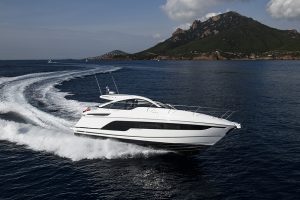Protest over “attack” on barge travellers without permanent moorings
Members of the National Bargee Travellers Association are marching in London on 16 April over a clamp down on boat dwellers without permanent moorings.
The National Bargee Travellers Association claims a clamp down by the Canal & Rivers Trust (CRT) on boat dwellers without permanent moorings on its waterways is a “determined attack” on their way of life.
Under the British Waterways Act 1995, licences can only be given to vessels which are used “bona fide for navigation throughout the period for which the consent is valid without remaining continuously in any one place for more than 14 days or such longer period as is reasonable in the circumstances.”
The CRT interprets this to mean that boat owners must be continuously cruising, up to 20 miles a year in any one direction.
However, a lack of permanent moorings and the pressures of being close to a job or a school means many boat dwellers travel much shorter distances, usually up and down the same stretch of waterway.
Last month, the CRT announced that from 1 May 2016, it will no longer offer three month restricted licences to boaters who have not been meeting the terms of their ‘continuous cruiser’ licence.
The trust argues that since May 2015, it has been doing all it can to provide “greater clarity” to boaters without a home mooring.
This has included: getting in touch early to let boaters know when they haven’t been moving enough to meet the terms of their licence; sending out information packs when people take up a ‘continuous cruising’ licence; and sending text messages to overstaying boats to see if they need any help.
The CRT’s head of boating, Mike Grimes, believes the measures are having a positive effect.
“It has been encouraging to see that many boaters on short duration licences have been able to increase their range of movement, while a number have opted to take home moorings. Half of those issued with a three month licence, and nearly two-thirds of those issued a six month licence, improved their cruising pattern whilst on a restricted licence and were offered further licences on this basis,” he said in a CRT media release.
Grimes explained that offering three month restricted licences was always a temporary measure.
“Six month restricted licences may still be offered to those boats that aren’t quite meeting the movement requirements to allow them a final opportunity to show an improvement. Boats without a home mooring that are not moving in line with our guidance, despite all the communication they have received, will no longer be offered a licence of any duration,” he said.
But, the National Bargee Travellers Association is demanding that the CRT stops “evicting or threatening to evict boat dwellers without permanent moorings based on their travel pattern, because of an arbitrary and unlawful minimum distance ‘rule’ that has been imposed since last May”.
It also wants a stop to 24-hour mooring limits, arguing that the law entitles boat dwellers to stay 14 days in one place.
The association claims boat dwellers without permanent moorings suffer “persistent harassment”, “violations of privacy” and a “lack of support” for their live-aboard needs.
It wants the CRT to do more to maintain the banks and towpaths of the waterways and install more mooring rings and facilities.
On 16 April, the association will be joining the March for Health, Homes, Jobs and Education in London. It will be handing in a petition to Parliament demanding that the Government pressures CRT to “stop its attack on boat dwellers without a permanent mooring”.
Man dies in canal boat fire
A canal boat fire in the Kennet and Avon Canal in Bradford-on-Avon has claimed the life of a man.
Sunk narrowboat owner overwhelmed by donations
One of two narrowboats that were swept off their moorings on Monday and smashed into Oxford's Botley Bridge has sunk,…
Vandals force narrowboat owner to abandon his moorings
Holes allegedly have been drilled into boats in the West Midlands, causing them to sink.












